By Reshat Kripa
Part Two
Memorie.al / To talk about the communist genocide practiced in prisons and camps is like describing the horrors of hell. Ask those who managed to survive these horrors, and you will learn of events never before heard, inconceivable for a sane mind. You will learn about prisons and camps created specifically for the extermination of people, about horrifying tortures inflicted on prominent nationalists and democratic intellectuals who dedicated their lives to the homeland.
Continued from the previous issue
Hafiz Sabri Koçi
With great dedication, high religious preparation, and convincing arguments, addressing problems that concerned believers with a simple yet fiery word, he increased the ranks of believers, and more and more young people came to the mosque and followed religious rites, which was in open contradiction with communist ideology and Party propaganda. The backlash was not long in coming. In this regard, Hafiz Sabriu recalls:
“The First Secretary of the PPSH (Albanian Party of Labour) for the district of Shkodra at that time, shamelessly came and entered the Mosque and threw the youth out, while the Chief of the Branch put various pressures on me, telling me: ‘You are the most reactionary of all clerics, as you are poisoning our youth, you are giving them opium,’ he tells me that I should take off my religious attire. In no way could I accept such a thing and retreat from the path I had started since childhood!”
Baba Ali Tomori
This is how he addressed the soldier of the firing squad, who fainted because he did not want to shoot him, on January 14, 1948: “Get up, son! Shoot, son! God be with you!… Get up, my son! If you don’t shoot, someone else will. If you don’t kill, someone else will kill. Blood, blood, blood until the devils in the human soul are softened.” The squad opened fire several times. Thirteen men fell never to rise again, while Baba Ali, to everyone’s surprise, continued to stand.
-“I will take off your taç, Baba.” It’s Dervish Resuli. – “Take it off, son!” The dervish knelt, kissed his feet. – “Forgive me, Baba!” – “I have forgiven you, son!” – “May Albania wither with this evil seed that has come!” – “Don’t fill your mouth with such words, son, don’t burden your soul! Because Albania belongs to everyone, to the living and the dead. And even if the living doesn’t love it, the dead will not let it go. Don’t burden your soul! Albania must live. God has made Albania to live.”
Baba Shefqet Koshtani
This is how he answered the prosecutor at the court session: “It is not worth looking for a reason, evil does not begin and does not end with us. This is the curse of God. Our minds are not able to judge it. The serpent will grip this country by the throat for a long time.”
Bishop Irene Banushi
How he opposed the destruction of religious institutions: “Religion has no reason to be destroyed, because its main function is to harmonize human life, as our Father has left it to us.”
Bishop Joan Pelushi
“My first contact with faith was in the years 1974-1975. I became part of a small group, of an underground church, and was secretly baptized on June 24, 1979, the feast day of Saint John the Baptist (from which the choice of the name Joan comes), a baptism performed in Bestrova, Vlora, by the devout and fearless priest, Father Kozma Qirio, who after the opening of the churches was elevated to the episcopal rank and is known as Bishop Kozmai. In Vlora, I also received my first communion.”
The Muslim and Christian clerics became martyrs for their faith, faithful to the end to God and the believers. They were also imbued with love for faith and homeland and did not accept any compromise with the regime, remaining faithful to their religion and nation, for which their soul always remained free.
Who were the martyrs who suffered from the communist genocide?
Muslim Clergy
Executed: Hoxha Selim Brahja (1946), Imam Seit Idriz Shehu (1946), Mufti Shyqyri Hoxha (1946), Muezzin Qazim Roji (1946), Imam Halil Hoxha (1946).
Died in prison: Imam Liman Shabani (1945), Imam Ahmet Troci (1945), Imam Ahmet Hysejni (1945), Hafiz Mustafa Varoshi (1948), Hoxha Jakup Dusha (1953), Hafiz Xhemal Naipi (1955).
Imprisoned: Hafiz Ali Korça, Hafiz Sherif Langu, Hafiz Ali Kraja, Hafiz Esat Myftia, Hafiz Ibrahim Dalliu, Hafiz Ismet Dibra, Hafiz Musa Dërguti, Hafiz Sabri Koçi, Haxhi Faik Hoxha, Haxhi Faik Sheh Qazim Hoxha.
Bektashi Clergy
Executed: Baba Qamil Gllava (1945), Baba Xhelo Gllava (1946), Hajro Progonati (1947), Baba Ali Tomori (1948), Baba Shefqet Koshtani (1948), Baba Bedri Carkanji (1948), Baba Habibi (1948).
Died in prison: Dervish Mehmet Verleni (1947), Dede Kamber Prishta (1950), Baba Muçua of Prishta (1950), Baba Mustafa Canaj (1952).
Committed suicide: Dede Hilmi Abazi (Elezi), Baba Hajro Progonati, Baba Mehmet Kreshova, Baba Bektash Sevasteri, Baba Myrteza Kruja, Baba Samiu of Kulmak.
Imprisoned: Baba Bajram Mahmutaj, Baba Paja, Baba Ilmiu, Baba Halim Therepeli, Baba Mehmet Frashëri, Baba Sulua, Baba Islam Leskoviku, Baba Abdulla Kruja, Baba Hilmi Shëmbërdhenji, Baba Sami Kamthi, Baba Dule Manaj, Baba Tahir Kuçi, Baba Jonus Greshica, Baba Qazim Devolli, Baba Muharrem Agushi, Baba Ismail Jangulli, Dervish Hysni Rehova, Dervish Nebi Cenollari, Dervish Tashja, Dervish Bajram Çerçizi, Dervish Hysniu, Dervish Meta Vërleni, Dervish Teki Plashniku, Dervish Rustem Velçani, Dervish Ali Korça.
Interned: Dede Ahmet Myftari, Dede Reshat Bardhi, Baba Selim Kaliçani, Baba Shaban Dervishi, Baba Sherif Canometaj.
Halvetian Clergy
Executed: Sheh Ibrahim Karabunara (1947 with his son), Sheh Qerimi of Delvina (1947), Shehu of Devolli (1947).
Died in prison: Sheh Myslim Luma (1958).
Catholic Clergy
Executed: Father Lekë Luli (1944), Father Leonard Targaj (1945), Dom Lazer Shantoja (1945), Dom Ndre Zadeja (1945), Dom Mark Gjani (1945), Father Papa Pandi (1945), Father Anton Harapi (1946), Father Giovani Fausti (1946), Father Daniel Dajani (1946), Father Gjon Shllaku (1946), Dom Nikoll Gazuli (1946), Dom Alfons Tracki (1946), Dom Luigj Pici (1946), Dom Zef Maksen (1946), Father Bernardin Llupi (1946), Seminarian Mark Çuni (1946), Dom Luigj Prendushi (1947), Dom Dedë Maçaj (1947), Bishop Frano Gjini (1948), Bishop Gjergj Volaj (1948), Bishop Nikoll Deda (1948), Father Mati Prenushi (1948), Father Çiprian Nika (1948), Dom Anton Zogaj (1948), Dom Ejëll Kovaçi (1958), Dom Dedë Malaj (1959), Dom Zef Bici (1968), Dom Mark Dushi (1968), Dom Marin Shkurti (1969), Dom Shtjefë Kurti (1971), Dom Mikel Beltoja (1974).
Died in prison: Father Bernardin Palaj (1946), Dom Mark Bicaj (1946), Father Serafin Koda (1947), Bishop Frano Gjuraj (1947), Dom Nikoll Shelqeti (1947), Dom Aleksandër Sirdani (1948), Dom Pjetër Çuni (1948), Dom Anton Muzaj (1948), Dom Ejëll Deda (1948), Dom Nikoll Laskaj (1948), Dom Dedë Plani (1949), Dom Jakë Bushati (1949), Bishop Vinçenc Prenushi (1949), Dom Kolec Prenushi (1950), Father Gaspër Suma (1950), Bishop Jul Bonati (1951), Father Pal Dodaj (1951), Father Karlo Sereqi (1954), Father Klemen Miraj (1956), Dom Rrok Frisku (1956), Dom Pjetër Noga (1958), Father Rrok Gurashi (1965), Dom Anton Doçi (1973), Bishop Ernest Çoba (1980), Dom Mark Hasi (1981), Dom Lazer Jubani (1982), Dom Lec Sahatçija (1986), Dom Nikoll Gjini (1987), Dom Pjetër Gruda (1989).
Imprisoned: Father Pjetër Mëshkalla, Father Zef Pllumbi, Bishop Gjergj Haberi, Dom Zef Shtufi, Dom Ndoc Nikaj, Dom Mark Shllaku, Bishop Bernardin Shllaku, Father Buon Gjeçaj, Father Pal Çurçia, Father Pashko Gjadri, Dom Nikoll Kimza, Dom Ndoc Suma, Dom Tomë Laçaj, Father Marin Sirdani, Dom Vlash Muçaj, Father Leonard Shajaku, Dom Mëhill Çuni, Father Çiril Cani, Dom Lazer Dedi, Dom Preng Qefalija, Dom Nikoll Shllaku, Dom Ndre Lufi, Father Floroan Berisha, Father Mark Harapi, Father Marjan Prela, Father Gjon Karma, Dom Pal Gjini, Father Alfons Çuni, Dom Ndue Çoku, Dom Lekë Dredhaj, Father Mëhill Miraj, Dom Injac Gjoka, Father Gegë Lumaj, Father Donat Kurti, Father Mëhill Troshani, Father Sebastian Deda, Father Filip Mazreku, Father Frano Kiri, Father Ferdinand Pali, Dom Marian Arta, Father Agustin Ashiku, Dom Kolec Toni, Dom Ndoc Sahatçija, Father Petraq Isak, Pope Josif Papamihali, Brother Gjon Pantalia.
Orthodox Clergy
Executed: Father Gjergj Leka (1944), Father Gjergj Suli (1948).
Died in prison: Father Josif Papamihali (1948), Father Llazar Api (1972).
Imprisoned: Archbishop Visarion Xhuvani (1946), Bishop Irene Banushi (1946), Father Petraq Isaku (1946).
These were the martyrs of faith who fell victim to genocide unprecedented in the history of humanity. Their number is much larger, but we have not been able to verify all of them. Honor and eternal glory to their unforgettable memory!
The communist system was overthrown at the end of December 1990. A new life was reborn, and along with it, the religious sects were also reborn. Churches, mosques, tekkes, and other religious institutions began to be rebuilt. The Albanian population began to actively participate in ceremonies held by religious institutions again. Belief in faith was the nourishment for their soul.
A special characteristic of religious belief in Albania is that, unlike in other countries, there is a perfect harmony between different religious sects. Such a thing was best shown during the visits to Albania by Her Holiness Mother Teresa in 1989, His Holiness Pope John Paul II in 1993, and His Holiness Pope Francis II in 2014, where the entire Albanian people, regardless of religion, showed their love for these distinguished representatives of the Catholic faith. / Memorie.al




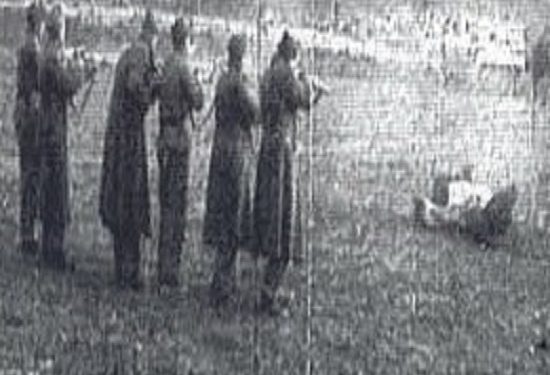
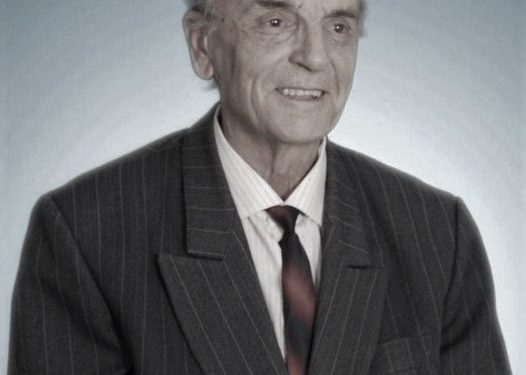
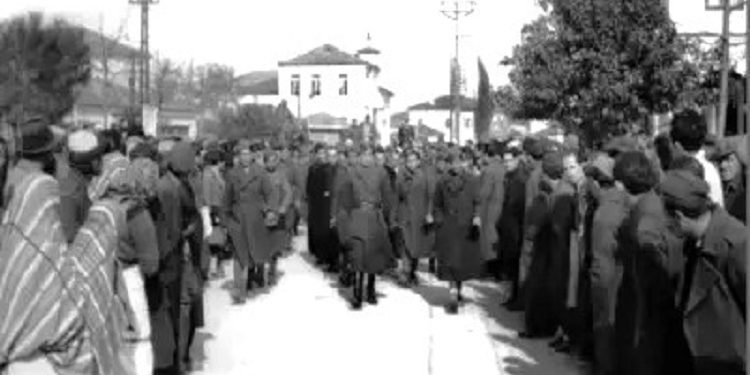
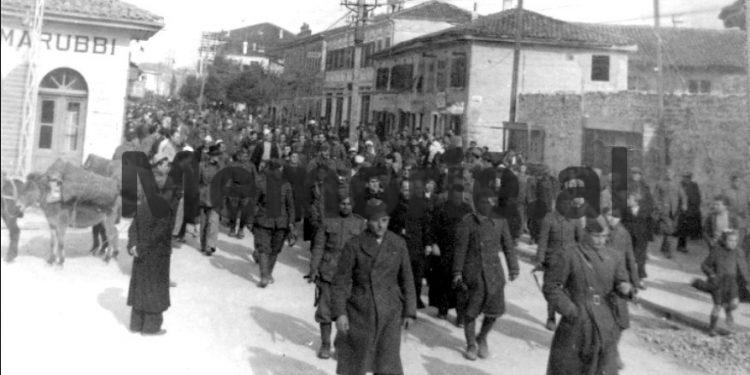
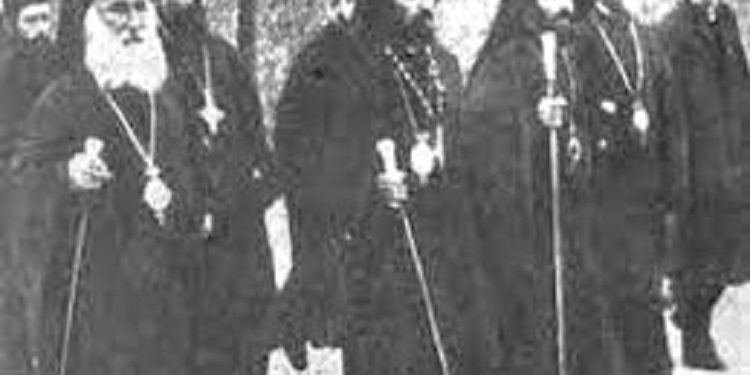
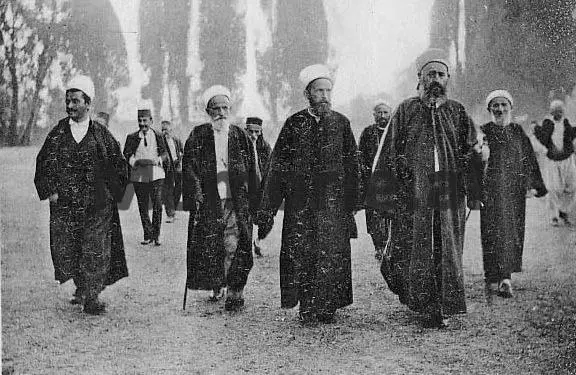
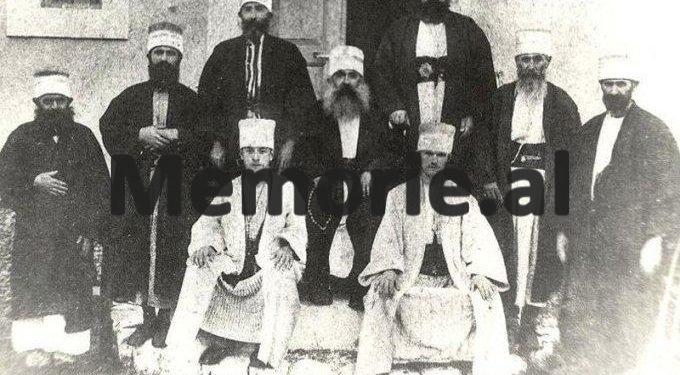
![“The ensemble, led by saxophonist M. Murthi, violinist M. Tare, [with] S. Reka on accordion and piano, [and] saxophonist S. Selmani, were…”/ The unknown history of the “Dajti” orchestra during the communist regime.](https://memorie.al/wp-content/uploads/2026/02/admin-ajax-3-350x250.jpg)
![“In an attempt to rescue one another, 10 workers were poisoned, but besides the brigadier, [another] 6 also died…”/ The secret document of June 11, 1979, is revealed, regarding the deaths of 6 employees at the Metallurgy Plant.](https://memorie.al/wp-content/uploads/2026/02/maxresdefault-350x250.jpg)




